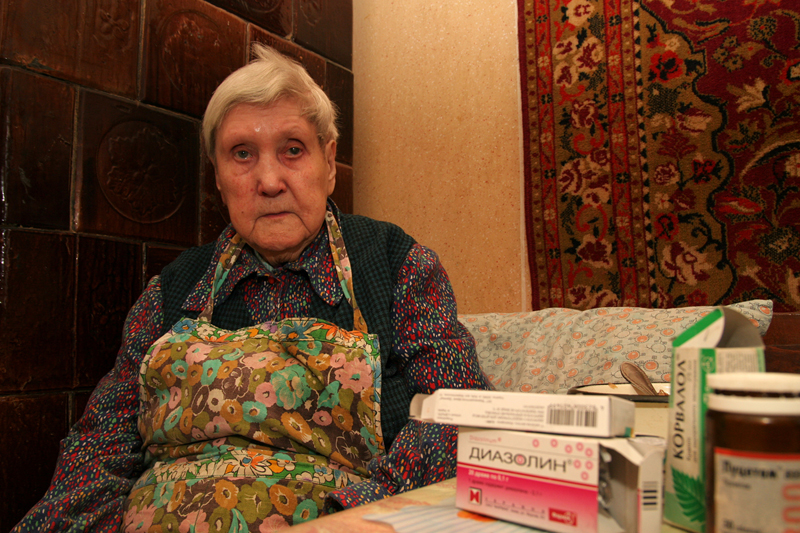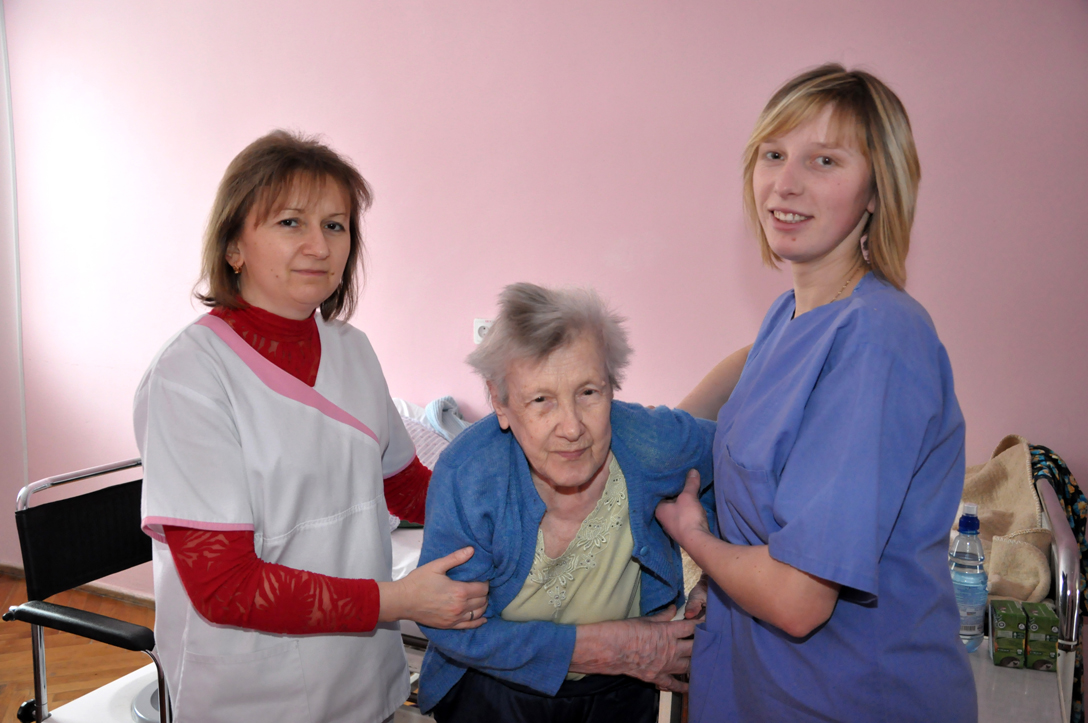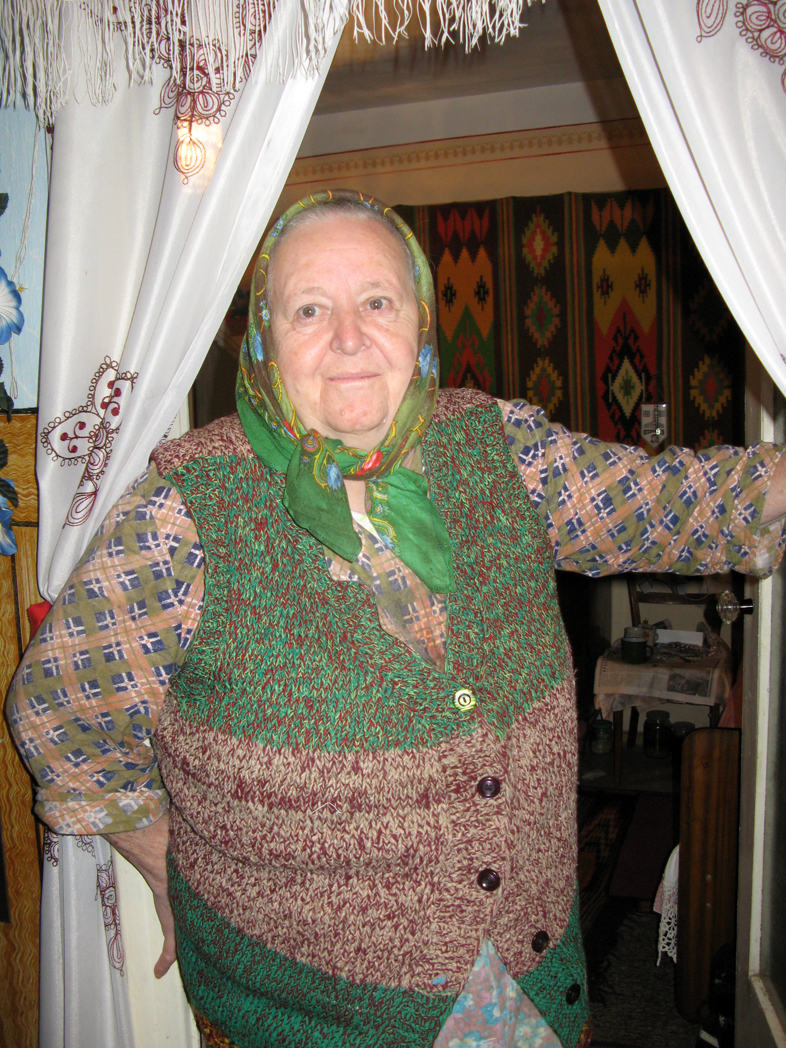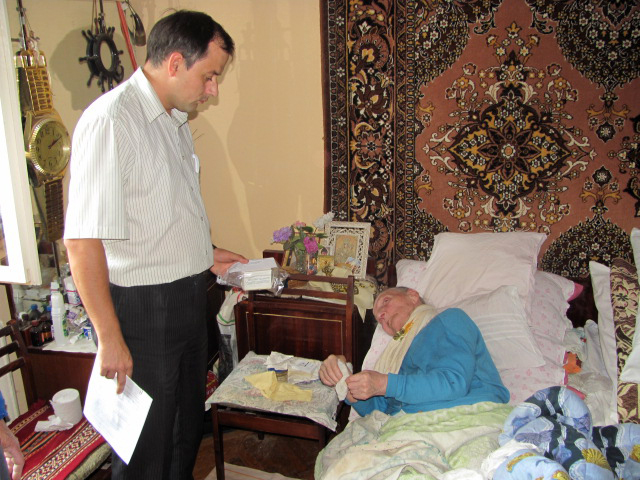
09.04.12
7 April – World Health Day. It’s a global campaign, inviting everyone – from global leaders to the public in all countries – to focus on a single health challenge with global impact. Focusing on new and emerging health issues, World Health Day provides an opportunity to start collective action to protect people’s health and well-being.
On this day we want to present you several stories of the Home Care project patients. The Home Care program strives to compliment the care that the elderly and those with HIV/AIDS obtain at stationary medical facilities run by the government. They target their services to the ill and those who need care.
Myroslava Oleksiyivna Yel’tsova of Ivano-Frankivs’k whose vision is classified as a Category 1 Disability:
“My name is Myroslava. I am 57 years old. I have been quite unfortunate in life. I gave birth to a boy with CP [cerebral palsy]; he was bedridden for 21 years and couldn’t speak. My husband, unable to cope with this, turned to the bottle with increasing frequency until he finally left us. I was left alone.
Being my son’s only caregiver, I ignored my own health. For seven years I didn’t m anage my diabetes; when I finally went to see a doctor, it was too late. I lost my sight because of diabetes. At the age of 47 I was totally blind.
anage my diabetes; when I finally went to see a doctor, it was too late. I lost my sight because of diabetes. At the age of 47 I was totally blind.
But trouble never comes alone; shortly thereafter I buried my only son. Unbelievable pain and despair overcame me. Thank God, I found good people to support me. They were Home Care workers from the Caritas Ivano-Frankivs’k UGCC.
They visit me at home, provide medical services and look out for me; they help me with everything. I am especially grateful for their moral support. I call them my daughters; they’re practically members of my family. I would like to thank all of you. May God bless you with good and long lives! Continue to do good deeds, they will come back to you, multiplied.”
*Names have been changed for ethical reasons
Ms. Oleksandra of L’viv, 90 years old:
She was born in 1924 to a family with 4 children. By the age of 18 she got used to the fear and look of death. Ms. Oleksandra survived German occupation during which she was threatened with execution. After that she endured other trials including being forced to labour at a sewing factory in Weisenburg, Bavaria (Germany). Her older sister also survived being an Ostarbeiter.
Ms. Ole ksandra worked in Germany for 3 years. It was there that she became infected with tuberculosis and started treatment.
ksandra worked in Germany for 3 years. It was there that she became infected with tuberculosis and started treatment.
She was returned to her homeland and moved to L’viv where she lived and worked. Her marriage didn’t last long —by law it never existed. To a single mother, the birth of a son gave her new hope and happiness, understanding, reciprocity, and respect. When her son grew up, he made a great career for himself—he studied at an establishment of higher education, became the secretary of a Komsomol organization and worked in a large business in L’viv. He prospered both in the Communist party and on a personal level; he had a son.
But the turbulent 90s shattered a mother’s peace and confidence. There was lawlessness, financial worries, an inability to adapt to an independent Ukraine, and her growing dependence on others compounded by her son’s disappearance.
The life of this lonely, elderly and ill person, whose vision is failing, is managed by strangers. For almost 10 years now, highly qualified and sensitive social workers from the Sheptytsky Hospital, who provide medical and social services through Caritas Ukraine’s Home Care program, together with employees from the Regional Territorial Centre care for Ms. Oleksandra.
Oleksandra waits and hopes for one thing…for her only blood relation, her grandson to understand that she needs his warm presence and assistance.
*Names have been changed for ethical reasons
Kateryna Mykhaylivna Pavlyak of Boryslav, a nurse with 40 year’s experience:
“I have a terrible problem—I have Rheumatoid arthritis, hypertonic disease and gallbladder disease. I am married to two canes; it’s difficult for me to get around.
Several years ago I found myself in a very difficult situation; it was during this time that Caritas employees from Home Care came to my assistance. Their help was priceless—they supported me financially and morally; they saved me from destructive thoughts that kept creeping into my head. They brought Doctor Mariya Yuriyivna Khemych to care for me and brought me all the medicines she prescribed. 
The girls from Home Care have been caring for me since 2002. They bring me medicines, groceries, even cleaning supplies. A nurse constantly looks in on me; she measures my blood pressure, gives me injections and performs other medical procedures, because I cannot take care of myself. My house is spotless; the girls prepare my meals, buy groceries at the market and always bring me exact change. They take my clothes to be laundered and bring them back clean and ironed. For a person who cannot fully use their hands, this is an enormous help!
My pension payments are too small for me to be able to afford a helper and my medicines, so this service is a big help for those who are ill, alone and poor.
I sincerely thank the Director of the local Caritas, the Home Care Coordinator, the Doctor and the social workers—all the good people who do this good work. In today’s world, such people deserve recognition and love!”
*Names have been changed for ethical reasons.
Tags:

